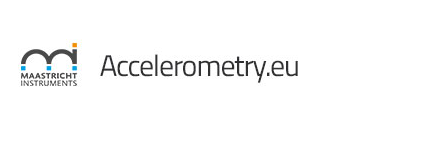Adequate exercise and getting around quickly is an essential part of a successful recovery after illness. Sufficient exercise does not happen by its very nature: people often need support and guidance. The medical app with movement sensor “Hospital Fit” offers a solution. This digital tool gives patients and their medical practitioners insight into the movement behaviour of patients, and the amount of physical functioning during admission in hospital. Hospital Fit also offers the possibility to put together a tailor-made exercise programme. The development and introduction of this new medical tool has been made possible by the SBIR programme “Safe in Movement with Smart Sensors”.
The Hospital Fit app was developed by the Physiotherapy department of Maastricht UMC+ in collaboration with Maastricht Instruments B.V. and Maastricht University. The primary idea for the tool originates from the Dutch Hacking Health, an annual event in which innovative ideas in healthcare are developed into concrete applications in a short period of time by teams of patients, healthcare professionals, technicians and ICT professionals.
Loss of muscle tissue
Many patients spend more than 80% of the day lying or sitting during hospitalisation, causing them to deteriorate both physically and conditionally. Patients who are bedridden, and especially those who spend long periods in hospital on a nursing ward or in intensive care, can be seriously weakened. As a result of inactivity, muscle mass decreases very rapidly, patients lose their physical capacity and their physical condition decreases significantly. This became painfully clear once again during the corona heyday. Patients who had been in intensive care for weeks could sometimes barely stand on their legs. The Hospital Fit app can play an important role in supporting physiotherapists to keep patients as fit as they can during admission.
Research
Studies on patients who have undergone knee or hip replacement therapy, have shown that the use of the Hospital Fit app leads to patients exercising more and recovering faster. PhD student and physiotherapist Hanneke van Dijk-Huisman: ” Out of 97 patients followed with the Hospital Fit app, the patients who used the app appeared to move more than 28 minutes (39%) more the day after the operation than the control group without the app. Also, a larger proportion of the patients were fully independent in their movements the day after surgery”. Research involving the app led to a publication in the scientific journal Sensors.
Development, validation and implementation
The Maastricht UMC+ has recently started working with Hospital Fit. The Hospital Fit app was recently taken into use as part of physiotherapy treatment at the Medical Oncology and Haematology department of Maastricht UMC+. Since 31 August the app has been used in that department as an actual part of physiotherapeutic treatment.
Huisman: “Patients’ initial experiences have been primarily positive. Thanks to the app, patients are more aware of the importance of exercise and take more initiative outside the therapy. And the app also has advantages for physiotherapists: the app allows them to work more efficiently. By having insight into the movement behaviour of patients, the physical therapist can make better choices and more time can be spent on patients who also need it more’.
Social impact
The tool will help increase the efficiency of care processes in the hospital. The expectation is that the deployment of the system will enable healthcare costs to be saved during the hospital stay. Patients themselves will be able to play a more active role in the care process. In addition, it is important that the care tool can be used safely without risk of health damage. In the future, the system could also be applied in research, first-line care, nursing homes and home care.
